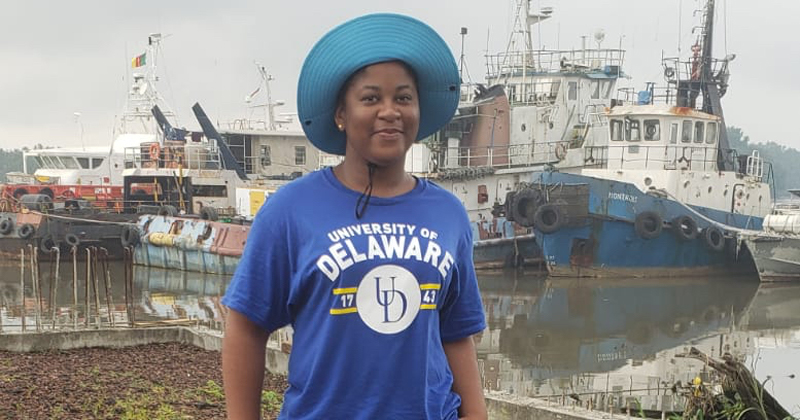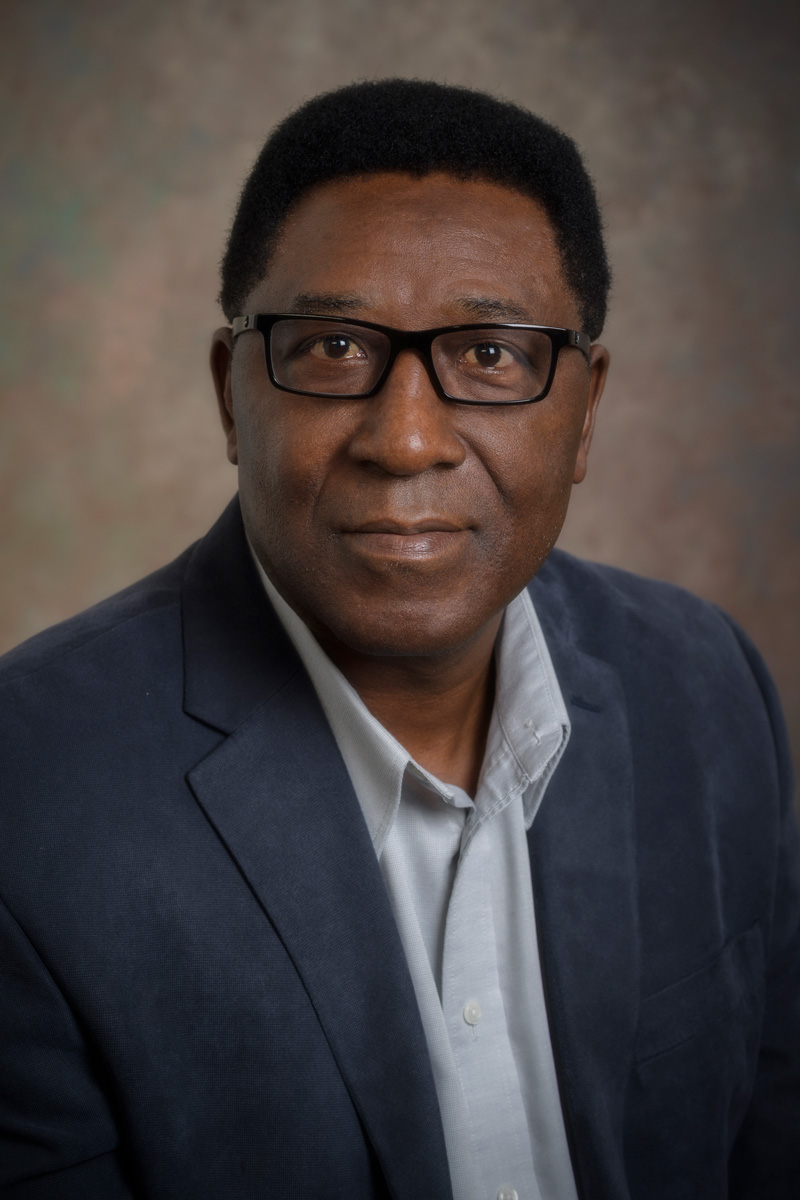


From Botswana to Delaware
Photo courtesy of Goabaone Jaqueline Ramatlapeng June 04, 2020
UD doctoral student reflects on her journey and aspirations
When University of Delaware doctoral student Goabaone Jaqueline Ramatlapeng was looking for institutions to study outside of her home country of Botswana, she wanted the institution to have a strong research focus. One of the main reasons she chose to study at the University of Delaware was the state-of-the-art research facilities.
“When I moved from Botswana to here, one thing I wanted was an institution that is research driven, and the environment here at UD is very good for research,” said Ramatlapeng. “If I want to do any kind of experiment, the equipment is there and the apparatus’ are there [in the labs] for different experiments.”
A doctoral student studying hydrogeochemistry in UD’s College of Earth, Ocean and Environment, Ramatlapeng is a student under Eliot Atekwana, professor in the Department of Earth Sciences.
Ramatlapeng said that her research focus is looking at water chemistry in different environments, such as semi-arid environments and tropical estuaries.
Her background is in geology, which is what she focused on as an undergraduate student in Botswana. But after doing a water-related research project, and living in a country that is mostly desert, Ramatlapeng decided to switch her focus to water.
“The fact that in Botswana, 70 percent of the country is a desert, made me realize that it would be useful to look into processes that could potentially affect the quality of our water resources in the country,” said Ramatlapeng.

To help build up her water research experience, Ramatlapeng was able to travel to Cameroon with Atekwana to look at the effects of pollution from agriculture, urbanization and industry on carbon cycling in the Douala Estuary. The project was funded by the National Science Foundation to train U.S. undergraduate and graduate students in research, education and cultural activities in a foreign country.
In addition to Ramatlapeng, two students from Fort Hays State in Kansas and one student from Compton College in California also went on the trip. The U.S. students were paired with Cameroonian peers from the University of Buea, the University of Douala and the University of Yaounde I.
“To date, the students have published abstracts and made scientific presentations at the 2019 meetings of the Geological Society of America (GSA) and the American Geophysical Union (AGU),” said Atekwana. “Some of the students are currently being mentored to publish some of the research in peer review journals.”
Ramatlapeng is one of the students who wrote two abstracts and presented at both meetings. For the GSA meeting, Ramatlapeng presented on investigating the effects of estuarine water on groundwater quality around the coastal aquifer.
“This is important because groundwater in the Wouri Estuary in Cameroon is essential in maintaining the water supply,” said Ramatlapeng. “I researched whether salt water from the estuary intrudes into the coastal aquifer which would impact the quality of groundwater.”
For AGU, she presented on a project that looked at the tidal exchange of water between the sea and the Wouri estuary and between the main estuary channel and tidal creeks and rivers which is critical for salt balance, biogeochemical cycling and pollution flushing in the system.
“Using high resolution physico-chemical data, I looked at the interaction of water between the sea and the main estuary channel and tidal creeks and rivers to see how the water exchange affects the biogeochemical cycling of nutrients in the system, which has implications for pollution flushing, since the area is subjected to a lot of pollution,” said Ramatlapeng.
To conduct the research, Ramatlapeng said that the research team looked at the spatio-temporal variations in water and sediment chemistry to understand the effects of human activities and how they are potentially polluting the estuary.
Before going out in the field, the students were trained on how to use research equipment and how to take and analyze samples from the field. Then, they went into the estuary to collect water and sediment samples to look at how the chemistry changed as they moved across the estuary.
For Ramatlapeng, the most beneficial aspect of conducting research in Cameroon was being able to do research field logistics in a foreign land and being exposed to new research insights, as it was the first time she conducted research in a tropical, coastal area.
“My thesis work is based on a semi-arid environment so it was a really interesting switch to work in a coastal area,” said Ramatlapeng. “I learned a lot because the processes are quite different — the hydrogeological processes and the climatic factors affecting general behavior of solutes in water are very different in a tropical coastal setting compared to arid systems.”
She also enjoyed being exposed to a new culture.
“Having that personal exchange was the most exciting part. We had a lot of Cameroonian food, and I learned French. It was awesome and a wonderful experience,” said Ramatlapeng.
With regards to her plans for after she finishes her doctorate at UD, Ramatlapeng said that she wants to stay in academia and continue with her research in order to spread what she learns to current and future generations.
Contact Us
Have a UDaily story idea?
Contact us at ocm@udel.edu
Members of the press
Contact us at 302-831-NEWS or visit the Media Relations website

